New faculty to join McKelvey Engineering in 2020-21
Six new tenure-track faculty members and one lecturer will join the McKelvey School of Engineering in the 2020-21 academic year, strengthening and expanding the breadth of research conducted in the school
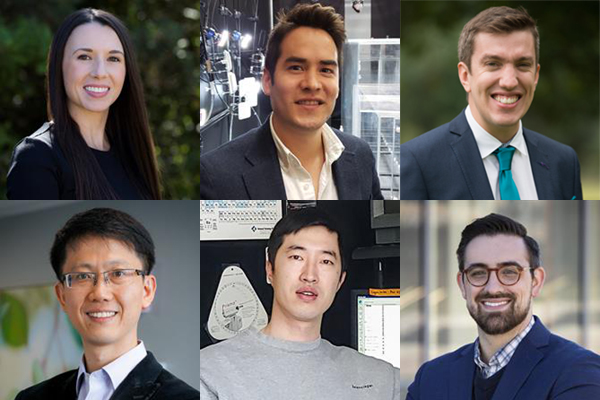
Six new tenure-track faculty members and one lecturer will join the McKelvey School of Engineering in the 2020-21 academic year, strengthening and expanding the breadth of research conducted in the school.
Biomedical Engineering
Alexandra L. Rutz, assistant professor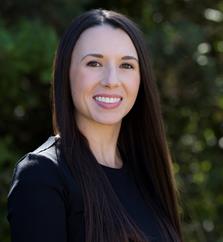
- PhD, MS, biomedical engineering, Northwestern University
- BS, chemistry and molecular and cellular biology, University of Illinois Urbana-Champaign
Alexandra L. Rutz joins McKelvey Engineering from the University of Cambridge, where she is the Marie Skłodowska-Curie Individual Research Fellow in the bioelectronics lab of George Malliaras, the Prince Philip Professor of Technology.
Rutz's research focuses on improving the biocompatibility and long-term function of implantable bioelectronics, especially neural probes. Her doctoral thesis focused on engineering hydrogel bioinks for 3D printing tissues and organs. Her training has been supported by grants from the Whitaker International Scholars Program, the NSF GRFP and the Marie Skłodowska-Curie Fellowship program. Rutz will join the department in Spring 2021.
Ismael Seáñez, assistant professor
- PhD, MS, biomedical engineering, Northwestern University
- BS, mechanical engineering, University of Texas, San Antonio
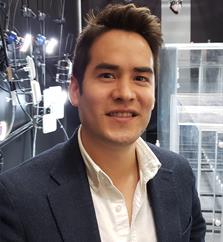
Ismael "Mayo" Seáñez joins McKelvey Engineering from the Swiss Federal Institute of Technology Lausanne (EFPL), where he is a postdoctoral fellow working with Grégoire Courtine as head of the translational division at the NeuroRestore Defitech Center for Interventional Neurotherapies. In his work, Seáñez focuses on developing brain-spine interfaces where real-time brain recordings are used to reinforce leg movements with spinal cord stimulation. His training has been supported by grants from the Whitaker International Scholars Program, the National Science Foundation's Graduate Research Fellowship Program, the National Institutes of Health Ruth L. Kirschstein National Research Service Award and the NIH MARC program.
Seáñez will join the department in Spring 2021. He also will have a secondary appointment at the School of Medicine as assistant professor of neurosurgery.
Computer Science & Engineering
James Orr, lecturer
- PhD, computer science & engineering, Washington University in St. Louis, 2019
- BS, mathematics and computer science, Mississippi College, 2013
James Orr joins CSE as a lecturer. He is a postdoctoral research associate in the department, working in the lab of Sanjoy Baruah, professor. While a doctoral student, Orr was a research assistant in the lab of Chris Gill, professor of computer science. He co-taught Advanced Operating Systems in CSE With Gill in Fall 2016 and has been a guest lecturer in four CSE courses. He has been a reviewer for IEEE Transactions on Computers and for ACM Transactions on Parallel Computing.
Electrical & Systems Engineering
Mark Lawrence, assistant professor
- PhD, physics, University of Birmingham
- MS, theoretical physics, University of Birmingham (England)
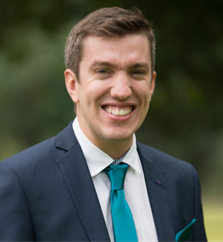
Mark Lawrence will join the Department of Electrical & Systems Engineering in January 2021 from Stanford University, where he is a postdoctoral researcher and physicist with interests in optics, nanophotonics and condensed matter physics. He is advised by Jennifer Dionne, associate professor of materials science and engineering who earned bachelor's degrees in physics and systems science & engineering from WashU in 2003. Lawrence's specific research focuses on the use of dielectric metasurfaces, plasmonic nanoantennas and photonic crystals to build novel systems and devices for applications in telecommunications, computing and quantum information.
While at Stanford, Lawrence proposed and experimentally demonstrated the first high-quality factor phase gradient metasurfaces and theoretically demonstrated power independent subwavelength nonreciprocity using Raman amplification; subwavelength Kerr-nonlinear nonreciprocal beam-steering; and dielectric metasurface enhanced enantiomeric detection and separation of chiral molecules. He has been an author on 14 published papers and one book chapter and holds one patent and two provisional patents.
Yong Wang, assistant professor
- PhD, biomedical engineering, Washington University in St. Louis
- MS, BS, electrical engineering, Xi'an Jiaotong University, Shannxi, China
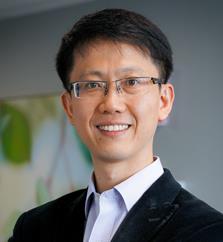
Yong Wang joins the Preston M. Green Department of Electrical & Systems Engineering as a joint appointment with the Department of Obstetrics & Gynecology at the School of Medicine. His current research on developing a novel hybrid noninvasive imaging system for the study of electrical maturation and microstructural changes of pregnant uterus builds logically on his prior doctoral and postdoctoral training. He will adapt and combine his expertise in ECGI and MRI/DBSI to creatively develop and validate the novel hybrid imaging system and use it to study the mechanism underlying preterm and normal term labor.
To further prepare for independent research in biomedical and life science, Wang devoted himself during his doctoral studies, to the exciting magnetic resonance imaging (MRI) research with the aim to improve the poor specificity of MRI biomarkers of CNS injury. His invention of meshless ECGI technique has eliminated conventional ECGI's imaging artifacts and enhanced the imaging speed by a factor of 100, which greatly facilitated the successful application of ECGI system to study the basic mechanisms of cardiac disorders.
Mechanical Engineering & Materials Science
Sang-Hoon Bae, assistant professor
- PhD, materials science and engineering, University of California, Los Angeles
- MS, BS, materials science and engineering, Sungkyunkwan University (South Korea)
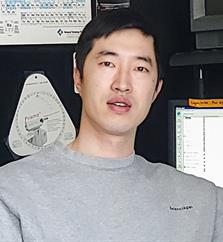
Sang-Hoon Bae will join the Department of Mechanical Engineering & Materials Science in August 2021 from Massachusetts Institute of Technology, where he is a postdoctoral research associate. His research interests include new material building blocks, including freestanding single-crystalline 3D thin films and 2D atomic layers; highly-efficient, cost-effective advanced photovoltaics; and heterogeneous integration with artificial intelligence toward ubiquitous electronics.
He is an author on 47 published papers and has won numerous awards. Bae completed research internships at IBM T.J. Watson Research Center and Samsung Display.
Matthew Bersi, assistant professor
- PhD, MS, MPhil, biomedical engineering, Yale University
- BS, biomedical engineering, Texas A&M University
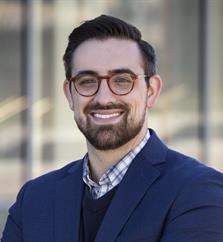
Bersi joins McKelvey Engineering from Vanderbilt University, where he has been a postdoctoral research scholar in biomedical engineering since October 2016 and a member of the cardiovascular research training program in the division of cardiovascular medicine at Vanderbilt University Medical Center.
Bersi's research interests are focused on using experimental and computational approaches to better understand the relationship between biomechanics and inflammation in soft tissues. To date, he has investigated the role of the immune system in hypertension, cardiac fibrosis and vascular injury and has developed tools to assess the mechanical properties of single cells using micropipette aspiration and mathematical modeling. While focused primarily on cardiovascular disease, this multiscale approach has applicability to understanding injury and disease processes in multiple tissues and organ systems. Bersi has multiple papers accepted or in-press in peer-reviewed journals, has made numerous presentations at conferences, and jointly holds a U.S. patent for the treatment of conditions associated with fibrosis and collagen deposition. He is also the recipient of the NIH Pathway to Independence Award (K99/R00) from the National Heart, Lung, and Blood Institute (NHLBI). He joins the faculty Aug. 1.
Click on the topics below for more stories in those areas
- Electrical & Systems Engineering
- Computer Science & Engineering
- Biomedical Engineering
- Mechanical Engineering & Materials Science

